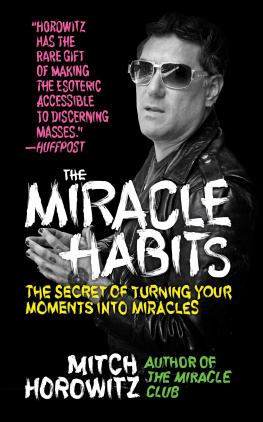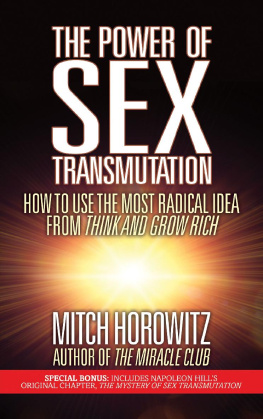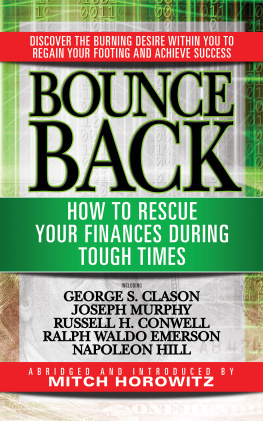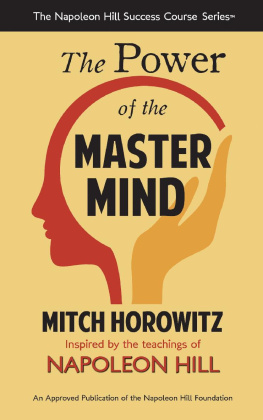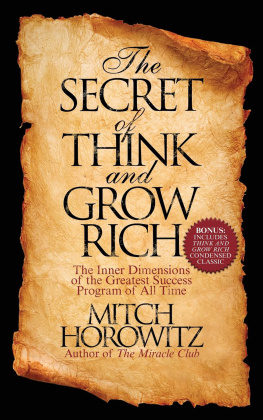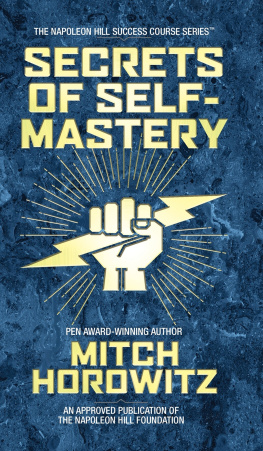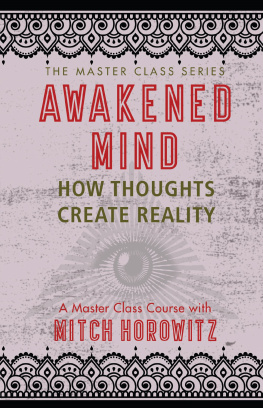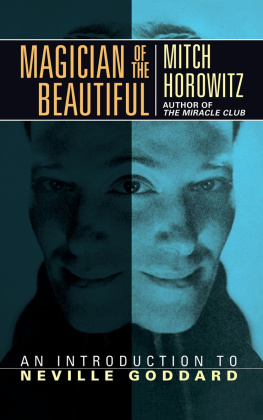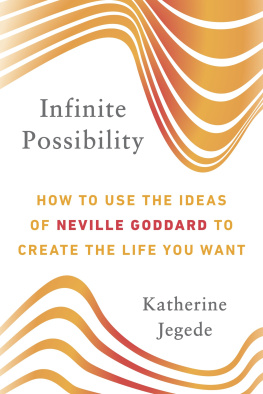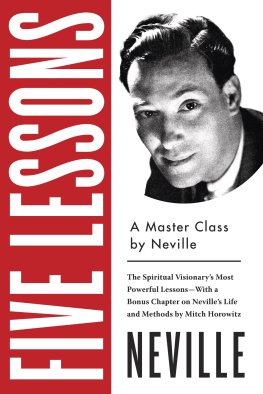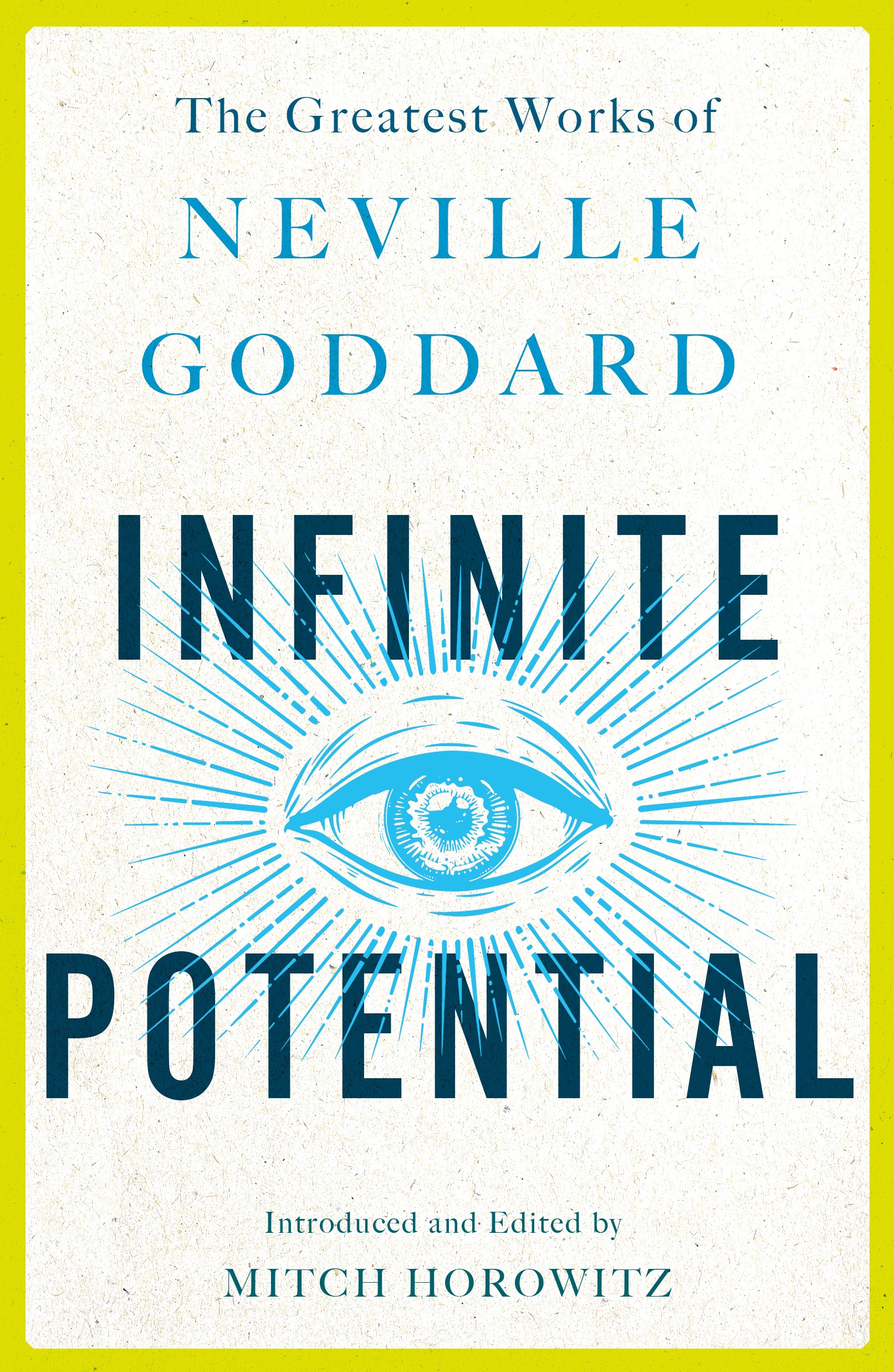The author and publisher have provided this e-book to you for your personal use only. You may not make this e-book publicly available in any way. Copyright infringement is against the law. If you believe the copy of this e-book you are reading infringes on the authors copyright, please notify the publisher at: us.macmillanusa.com/piracy.
As I came near, without thought or effort on my part they were, one after the other, molded as by the Magician of the Beautiful.
NEVILLE, THE SEARCH , 1946
The Barbados-born mystic Neville Goddard, who lived and worked in America for fifty years until his death in 1972, is one of the most extraordinary and unusual religious intellects of modern life.
I will never forget the first time I heard his name. In the summer of 2003, I was interviewing major-league pitcher Barry Zito, who was then playing for the Oakland As. Barrys father, Joe, taught him about Nevilles work, and the Cy Young Award winner used Nevilles ideas of mental creativity as part of his training regimen. Neville teaches that all reality is self-createdthat your mind is God the Creator. This formed a vital part of Barrys system of self-development at the time. Midway through our conversation he stopped and said, You must really be into Neville. The mystic wrote and spoke under his first name; I had never heard it. Barry was incredulous. After our talk, I got a copy of Nevilles 1966 book, Resurrection. I was enthralled with its ideasand hooked ever after.
I am often drawn to a teaching based on my perception of the teachers character and personage. Something about Nevilles persona gripped me, even before I had heard his clipped Anglican accent or seen his Romanesque image. Neville, to me, conveyed a kind of seriousness intermixed with the most radical proposition I had ever heard: Your imagination is God. Everything that you experience, including the words you are now reading, emerges from your own creative thoughts, of which the Jehovah of the Old and New Testaments is a symbolic pictogram. Everything is ultimately rooted in you, Neville taught, as you are rooted in God. This is the esoteric meaning behind Scripture, culminating in the crucifixion and resurrection of Christ and his self-realization of his own divinity. In Nevilles telling, the events of Scripture are not historical but are a mystical drama destined to play out in the life of every individual. Every man is destined to discover that scripture is his autobiography, Neville said in 1967.
You are Godit is the kind of statement with which one immediately wants to argue. We can all recall incidents in life that do not bear the markings of our creative desires or wishes, a topic to which I will return. But Neville, across more than ten books and thousands of lectures, which he freely permitted to be tape-recorded by audience membersa foresightful act that secured his legacy in the digital ageargued with unfailing simplicity and elegance for the sacredness of the imagination.
The only God, he told audiences, is your own wonderful human imagination. As youll discover in the selections that follow, Neville also taught that the secret meaning of existence is to discover your divine nature through the exercising of your minds causative abilities; this leads you into a series of mystical experiences that confirm your identity as the Creator.
Neville was born to an English family on the island of Barbados in 1905. He was one of ten children: nine boys and a girl. In 1922, at the age of seventeen, Neville migrated to New York City to study theater. His youthful intrepidness marked a difference between his era and our own. Neville experienced some success, appearing in roles on Broadway and in silent films. In 1926, an entertainment columnist hailed the young actors remarkable likeness to Rudolph Valentino. He also toured internationally as part of a dance troupe.
During his performing years, Neville encountered a wide range of mystical philosophies. In the early 1930s, the seeker dedicated himself to an intensive study of metaphysics, which by the end of the decade had laid the foundation for a new and unexpected career as a mystical writer and lecturer. In his talks, Neville credited his spiritual education to an enigmatic, turbaned black-Jewish man named Abdullah, who Neville said tutored him for five years in New York in Scripture, number mysticism, Kabbalah, Hebrew, and the laws of mental creativity.
Nevilles teaching became not only the most occultic edge of positive-mind, or New Thought, metaphysics, but also the philosophys most intellectually stimulating expression. Neville artfully and compellingly expanded on the principle of how each of us is the Creator clothed in human flesh and slumbering to his own higher nature. We live, Neville said, within an infinite network of coexistent realities from which we select among a limitless potential of experiences through the exercise of our mental images, emotionalized thoughts, and expectations. The men and women you see about you are also branches of the Creator: we each crisscross through one anothers universe of formative thought systems until we experience the ultimate realizationsymbolically told in Scripture as the crucifixion and resurrectionof our Godhood.
Neville told listeners and readers that Creation clothed itself in human form in order to give men and women life; so deep and total is the Creators love for its offspring that it willingly entered into a state of total immersion and forgetfulness of its divinity. Embodied in this cosmic framework is the mystical drama of the individual sleeping, chrysalis-like, to his true nature, experiencing an educative life of joys and tragedies, triumphs and sufferings, and eventually coming into realization of the truth. With that, Creation awakens and returns to itself.
If all this sounds somewhat head-spinning, rest assured: Neville conveyed his ideas with disarming simplicity and a frequent emphasis on using your mental powers to satisfy personal desires, which attracted people of varying levels of mystical interest and spiritual proclivity. Nevilles ideas are at once spiritually epic and workaday practical. He is one of the few modern spiritual thinkers for whom this is true.
Neville has influenced me more than any other teacher. His image is tattooed on my left forearm. Personal experience has led me to believe in his ideas. And yet I have also written that humanity lives under many laws and forces, including laws of physical decline and decay. To this, there has been no exception. For all the talk in New Thought circles and other mystical philosophies of each of us exiting life at precisely the appointed hour, something Neville occasionally referenced himself, many of us would give nearly anything for a healthy, extended stay, especially when faced with terminal or chronic illness, which seems to rob us of lifes potential. This is just one area where thoughtful seekers are prone to question Nevilles contention of absolute human divinity. So, how can I square my deep dedication to Nevilles work with my own questions?
First, I am not entirely sure that I canor that I ought to. Or that Neville would even want me to. The highest form of faith is critical in nature. I have no wish to create a closed-circuitry of belief. Such a system stifles the inner search and reduces personal questions and conflicts to the call-and-response of catechism. Paradox and inner friction are the price of any mature search.


